How to Fix Patchy Beard? - 15 Best Tips That You Could Try!
Evidence Based
All the information in this blog post is accurate, trustworthy, scientifically based and has been written and fact-checked by our experts and doctors.
Our licensed nutritionists and dietitians are committed to being objective, unbiased and honest, presenting all sides of the argument.
This article includes scientific references in brackets, which are clickable links to research papers from reputable academic organizations.

What is Patchy Beard?
Beards have always been a sign of masculinity, but not everyone is blessed with a full and thick beard. A patchy beard is a common problem that many men face, where hair growth is uneven, sparse, and not in a continuous pattern. This can make the beard look unkempt and unappealing. However, with the right grooming techniques and a little patience, it is possible to fix a patchy beard and make it look thicker.
Is a Patchy Beard Permanent?
A patchy beard is not necessarily permanent. In fact, many men experience patchy beards during their early 20s and mid-30s. As men age, the density and distribution of facial hair tend to improve. However, for some men, a patchy beard can be a permanent feature due to genetic factors, hormonal imbalances, or underlying medical conditions.
What are the Causes of a Patchy Beard?
There can be several reasons why a man may have a patchy beard. Some of the most common causes include:
- Genetics: Facial hair growth patterns are largely determined by genetics. If your family members have patchy beards, you may also experience the same.
- Hormonal Imbalances: Hormones such as testosterone play a crucial role in facial hair growth. If the levels of these hormones are imbalanced, it can lead to patchy beard growth.
- Nutritional Deficiencies: A lack of essential vitamins and minerals such as vitamin D, Biotin, and Zinc can affect hair growth.
- Skin Conditions: Skin conditions such as eczema, psoriasis, or fungal infections can disrupt hair growth.
How to Fix a Patchy Beard and Make it Look Thicker?
1. Balanced Diet:
Ensure you have a balanced diet rich in proteins, vitamins (especially biotin, vitamin d, zinc), and minerals. These nutrients promote hair growth and overall hair health.
2. Regular Exercise:
Engage in regular exercise to improve blood circulation, which can stimulate hair follicles and promote beard growth.
3. Proper Beard Care:
Keep your beard clean by washing it regularly with a mild beard shampoo. This helps remove dirt and excess oil, allowing hair follicles to function optimally.
4. Exfoliation:
Gently exfoliate the skin beneath your beard to remove dead skin cells and promote healthier hair growth. And also, Massage your face regularly to promote blood flow to the hair follicles.
5. Good Sleep Habits:
Get adequate sleep to ensure your body functions optimally, including hair growth and regeneration.
6. Beard Oil and Balms:
Apply beard oil or balm daily to moisturize your beard and the underlying skin. This helps prevent dryness, itchiness, and dandruff, while also promoting healthier hair growth.
7. Minoxidil:
Minoxidil is an FDA-approved topical solution for beard growth. Apply it to the patchy areas according to the instructions provided by the manufacturer.
8. Rogaine (Minoxidil Foam):
Similar to topical minoxidil, Rogaine foam can be applied to patchy areas to stimulate beard growth. It's important to follow the instructions provided by the manufacturer.
9. Consider Burgeon Up:
Burgeon Up is a trade marked ingredient that is extracted from freshly procured Nasturtium Officinale plant grown in Japan. It has been scientifically proven to improve hair growth.
10. Microneedling:
Microneedling involves using a derma roller or derma pen to create micro-injuries on the skin, which stimulates collagen production and can promote beard growth. A derma roller is a tool with small needles that can stimulate blood flow and promote hair growth when rolled over the skin. Consult a professional for this procedure.
11. Beard Transplant:
In severe cases, where natural growth is not possible, a beard transplant may be an option. This surgical procedure involves transplanting hair follicles from other parts of the body to the patchy areas of the beard.
12. Reduce Stress:
Stress can negatively impact hair growth. Incorporate stress-reduction techniques such as meditation, exercise, or hobbies to promote a healthier beard.
13. Avoid Frequent Shaving:
Contrary to popular belief, shaving does not promote faster or thicker hair growth. Let your beard grow without frequent shaving to give it a chance to fill in the patches.
14. Beard Styling:
Experiment with different beard styles that suit your face shape and help minimize the appearance of patchy areas. Professional barbers can offer advice on the best styles for you.
15. Patience and Time:
One of the most important factors is patience. Give your beard enough time to grow and fill in the patches naturally. It can take several weeks or even months to see significant improvement. Regular care, grooming, and maintenance will contribute to a healthier and thicker-looking beard over time.
[ Read: How to Grow Dense Beard on Cheeks? ]
Do Beard Growth Pills or Oils work?
Beard growth pills or Beard growth oils are marketed to help promote beard growth. Even though there is limited scientific evidence to support their effectiveness, there are some beard growth products that got very good reviews on their effectiveness.
One of them is ForMen Minoxidil Beard Growth Tonic. It contains 5% Minoxidil & 2% Burgeon Up and works more effectively in filling up thin and patchy beard spots.
A patchy beard can be frustrating, but there are several ways to fix it and make it look thicker. Growing out the beard, adopting a healthy lifestyle, maintaining proper hygiene, using beard oils, and considering medical treatments are all possible ways to address a patchy beard. Additionally, natural methods such as a balanced diet, exercise, stress management, and facial massages can also help promote beard growth. It's important to understand that there is no one-size-fits-all solution, and results may vary depending on the cause of patchy beard growth. Consulting with a healthcare professional or a dermatologist can help identify the underlying cause and provide personalised treatment recommendations. With patience and persistence, a fuller and thicker beard is achievable for most men.
FAQs:
1) Does Patchy Beard Mean Low Testosterone?
A) Not necessarily. While testosterone plays a role in facial hair growth, patchy beards can also be caused by genetics, nutritional deficiencies, skin conditions, and other factors.
2) Are Patchy Beards Attractive?
A) Beauty is subjective, and what one person finds attractive may differ from another. Some people find patchy beards attractive, while others prefer a full and thick beard.
3) Should I Shave My Patchy Beard?
A) Shaving a patchy beard is a personal choice. If you don't like the appearance of a patchy beard, shaving it off may be an option. However, if you want to keep the beard, there are ways to make it look fuller and thicker.
4) Does Beard Oil Help Patches?
A) Beard oil can help moisturise the skin and hair, reducing itchiness and dryness. It may also help promote healthy hair growth in patchy areas by providing essential nutrients and stimulating blood flow to the hair follicles.
5) Which vitamin is good for beard growth?
A) Vitamins such as vitamin D, biotin, and zinc are essential for healthy hair growth, including beard growth.
6) Does shaving everyday increase beard growth?
A) No, shaving does not increase beard growth. The rate of hair growth is determined by genetics and hormonal factors, not by how frequently you shave.
7) Which oil is best for a patchy beard?
A) There are many beard oils available, and what works best for one person may not work for another. ForMen Beard Growth Oil is a popular option that contains ingredients such as argan oil, jojoba oil, and vitamin E, which can help promote healthy hair growth.
8) Does zinc increase beard growth?
A) Zinc is essential for healthy hair growth, including beard growth. However, there is limited scientific evidence to suggest that zinc supplements alone can increase beard growth.
9) Should you use beard oil on a patchy beard?
A) Yes, beard oil can help moisturize the skin and hair, reducing itchiness and dryness, and promoting healthy hair growth in patchy areas.
10) How often should you shave if you want to grow a beard?
A) If you want to grow a beard, you should avoid shaving or trimming for at least four to six weeks. This allows the beard to grow in evenly, and you can identify any patchy areas that need attention.
11) Is it safe to use beard oil everyday?
A) Yes, it is safe to use beard oil every day, provided you are not allergic to any of the ingredients. However, using too much beard oil can lead to greasiness and clogged pores.
12) Does coconut oil help beard growth?
A) Coconut oil can help moisturize the skin and hair, reducing itchiness and dryness. While there is limited scientific evidence to suggest that coconut oil can promote beard growth, it can help keep the beard healthy and nourished.
13) Is it better to brush or comb your beard?
A) Both brushing and combing can help distribute beard oil evenly and detangle the hair. The choice between a brush or comb is a personal preference and depends on the thickness and length of the beard.
14) What happens if you use too much beard oil?
A) Using too much beard oil can lead to greasiness and clogged pores, which can cause breakouts or acne. It's best to use a few drops of beard oil at a time and apply it evenly throughout the beard.
15) Does castor oil help to fix patchy beard?
A) Castor oil is known for its moisturising and nourishing properties and can help promote healthy hair growth. While there is limited scientific evidence to suggest that castor oil can fix a patchy beard, it can help keep the beard healthy.
Also Read the Articles:
Disclaimer: The information provided on this page is not a substitute for professional medical advice, diagnosis, or treatment. If you have any questions or concerns about your health, please talk to a healthcare professional.

 Evidence Based
Evidence Based
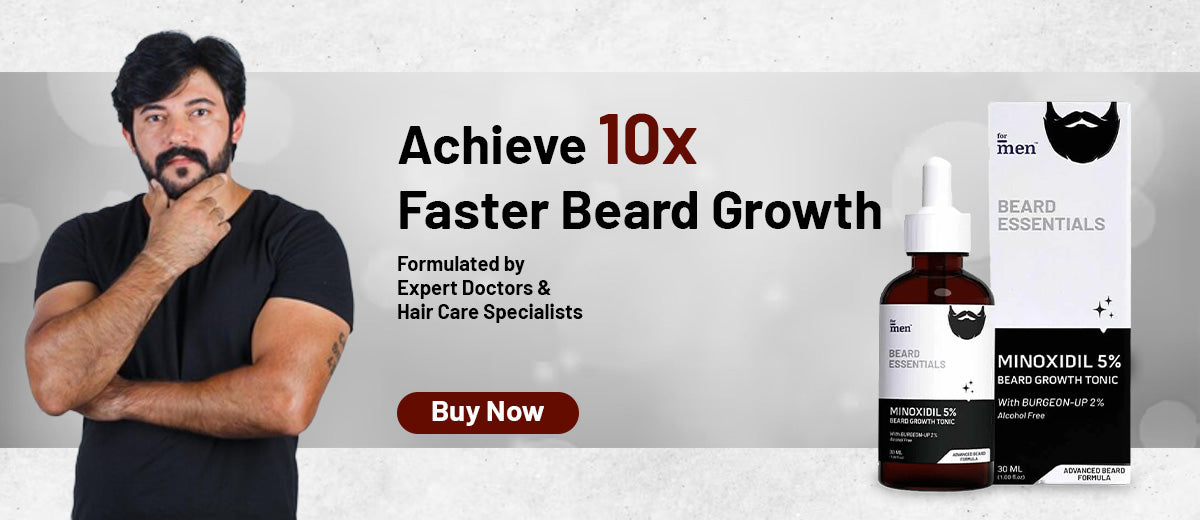

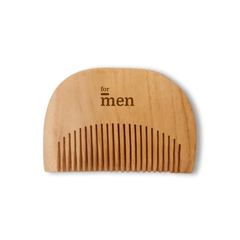
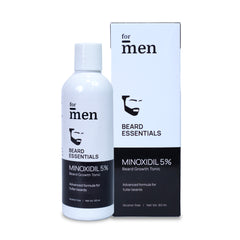
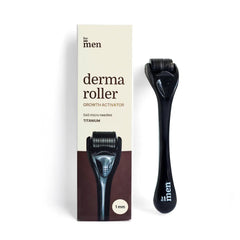
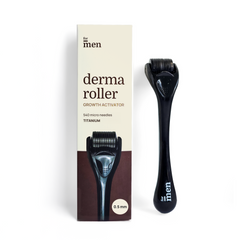

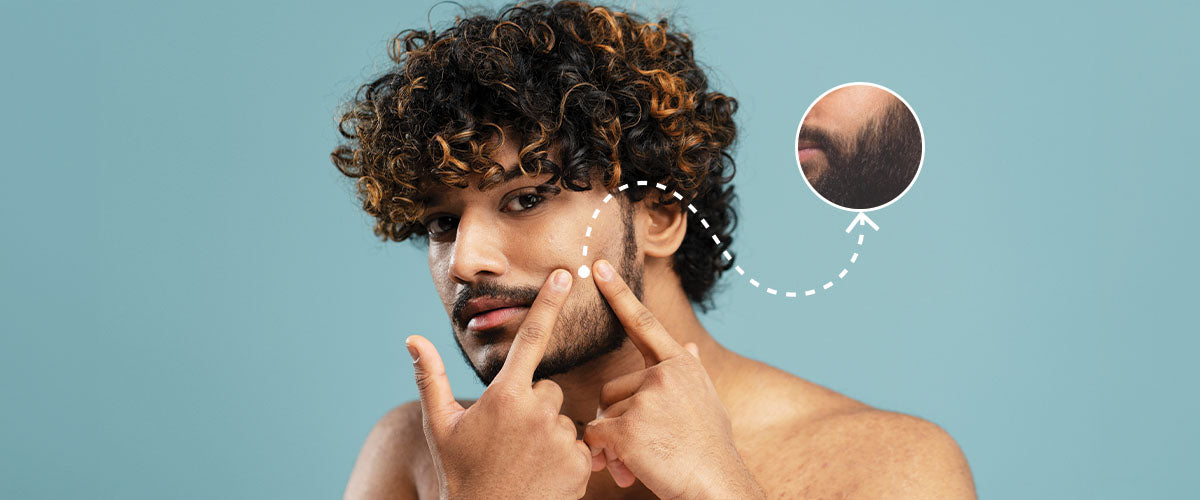
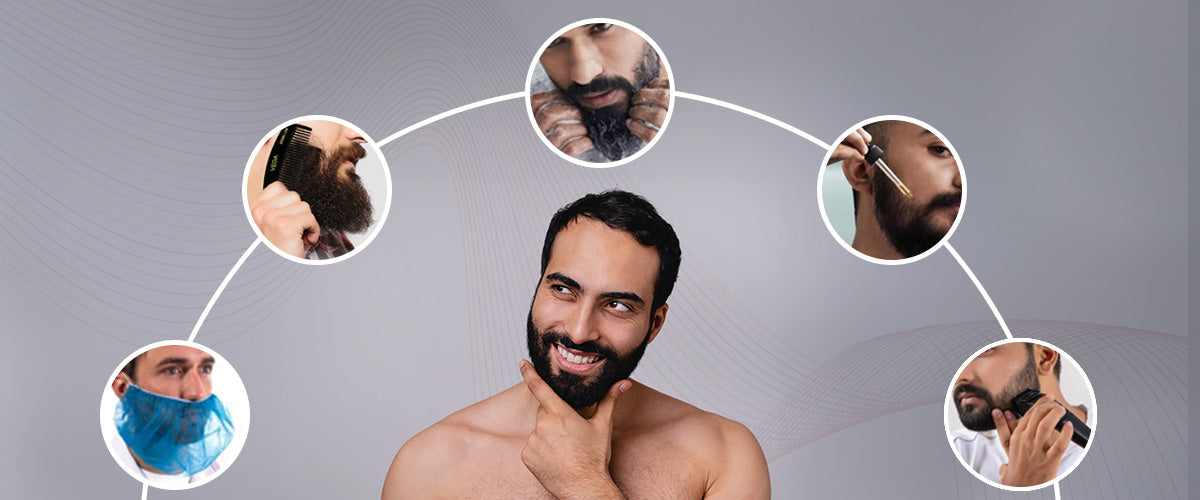
Leave a comment